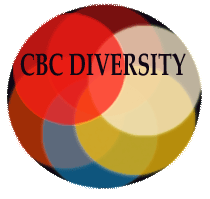CBC Diversity: Subjective Reality

Full disclosure up front: this is a post that asks more questions than it has answers.
I was speaking with a librarian the other day who told me that one of her challenges was handling the myriad restrictions parents put on their kids’ reading. In one specific case a mom complained about a middle grade novel that discussed how to tell the gender of one of the character’s pets. The parent felt this type of discussion was inappropriate. Of course it is important to be sensitive to a parent’s wishes when it comes to their children, and it brought into stark relief the difficult task that both teachers and children’s librarians have in recommending books to their students and patrons.
But my immediate reaction upon hearing that story was disbelief: surely, biology was not an off-limits topic in middle school? And the immediacy of my reaction forced me to face my own prejudices.
Although I was raised in a conservative Muslim family, there was one thing that was never policed in my household, and that was books. Maybe this was partly self-preservation on the part of my parents. As one of five kids, there was no way they would be able to keep up with helicoptering all of us. And maybe it was also a function of how we were being educated. My parents sent us to a Catholic school because they wanted remembrance of God to part of our daily life, and taught us our own faith through active discussions of the differences and similarities between what we were learning in school, and what we believed at home. I got used to learning all things comparatively, comfortable in the gray areas, and my knee-jerk assumption is that this is the best way to teach kids.
It’s not. Of course it’s not. It’s just one way.
What does this have to do with diversity in children’s literature? I think a lot about how individual kids are, and how what’s an appropriate book for one kid would not be suited for another, just based on their level of maturity and reading comprehension. But there is another element at play, and that is parents.
To state the obvious, not all parents are the same. But most do share one common goal: to protect their children. Sometimes that means protecting their kids from the very stories I believe are the most important to share. They want to create a reality for their kids that is in keeping with their worldview. They want to create a strong foundation of family values. This means reading books that are mirrors not windows. And that is where things get tricky. I don’t have the answer to this but it’s something I’ve been thinking a lot about—at what age does protecting your kids become a form of censorship in itself?

